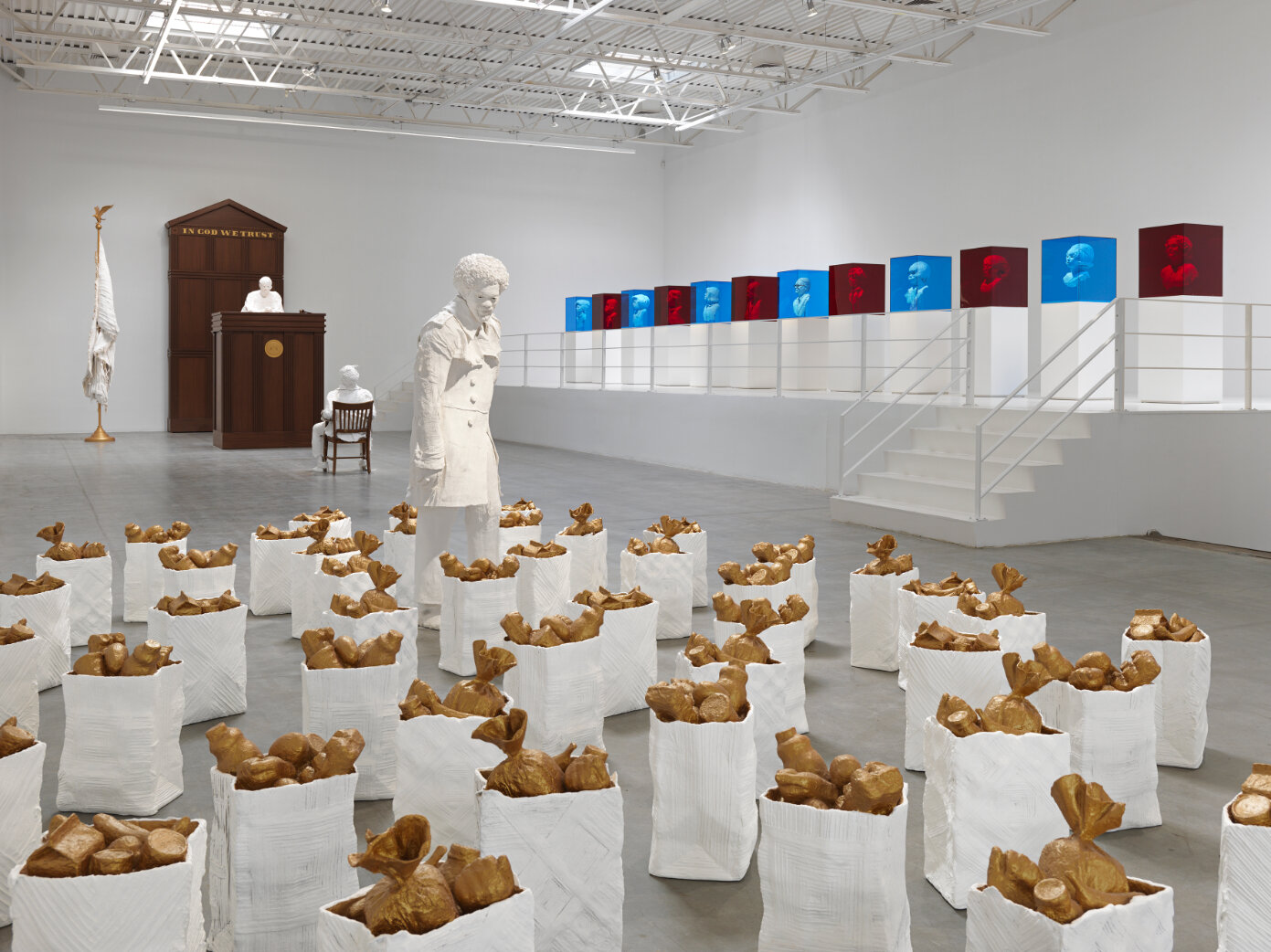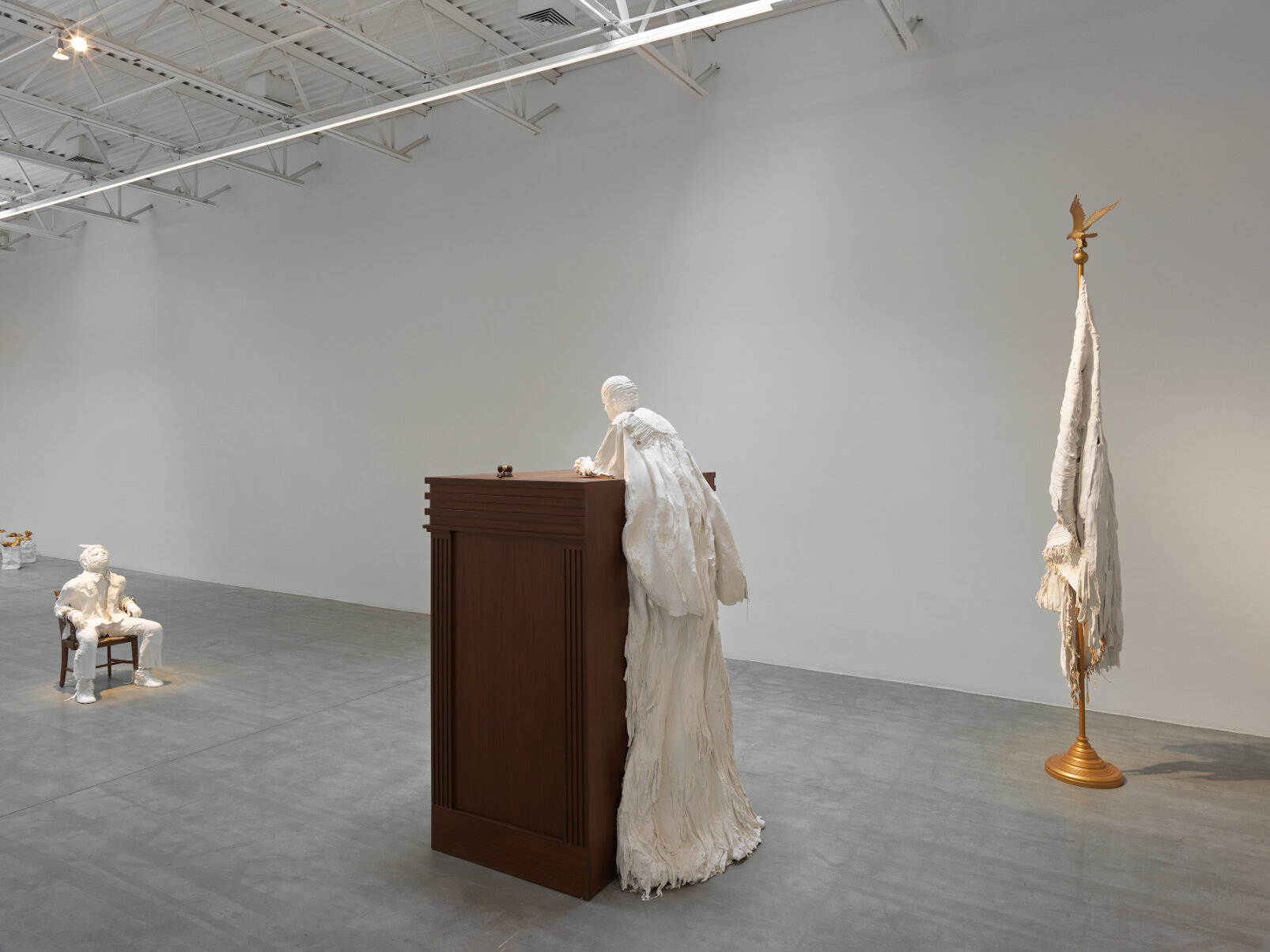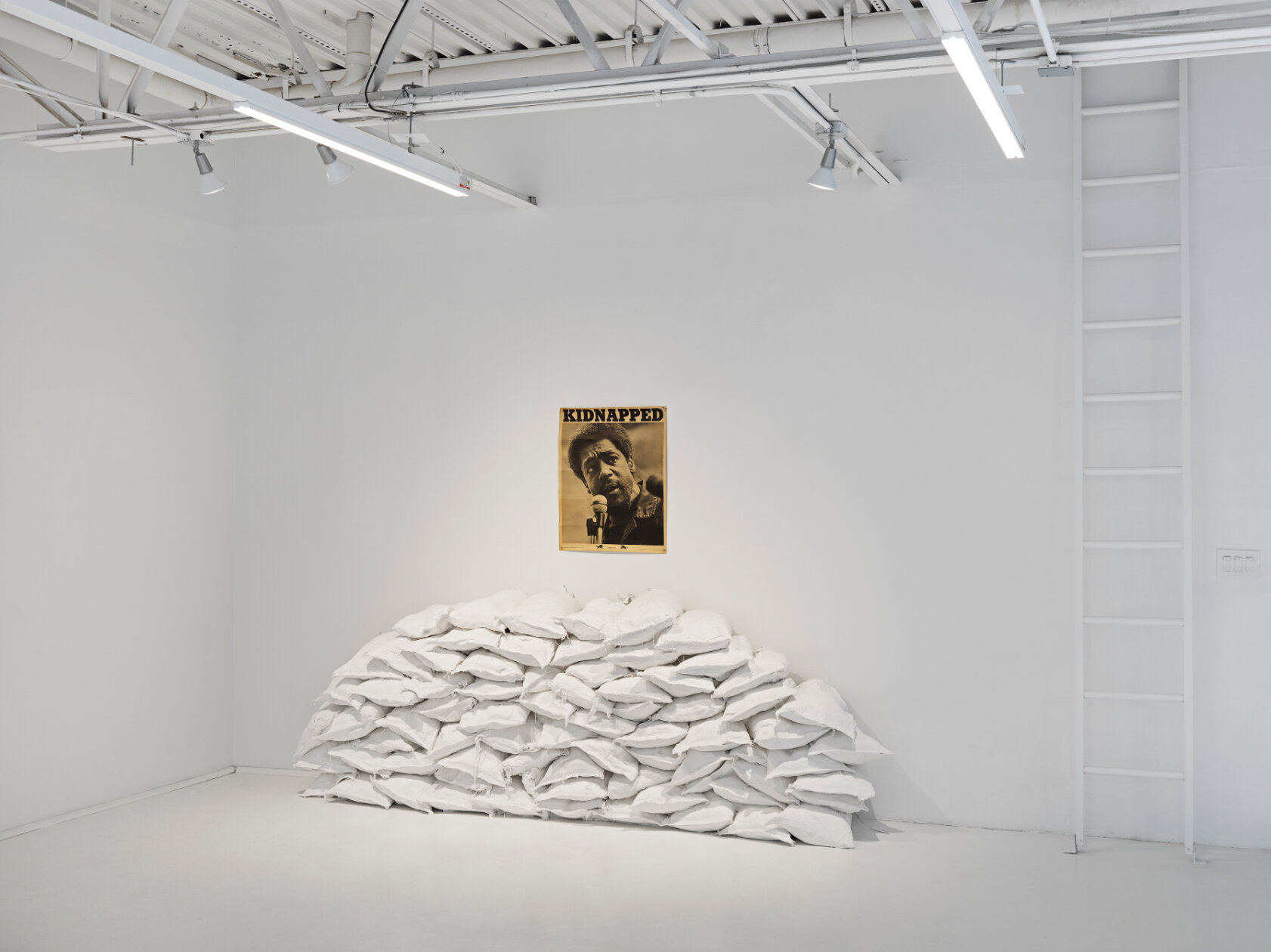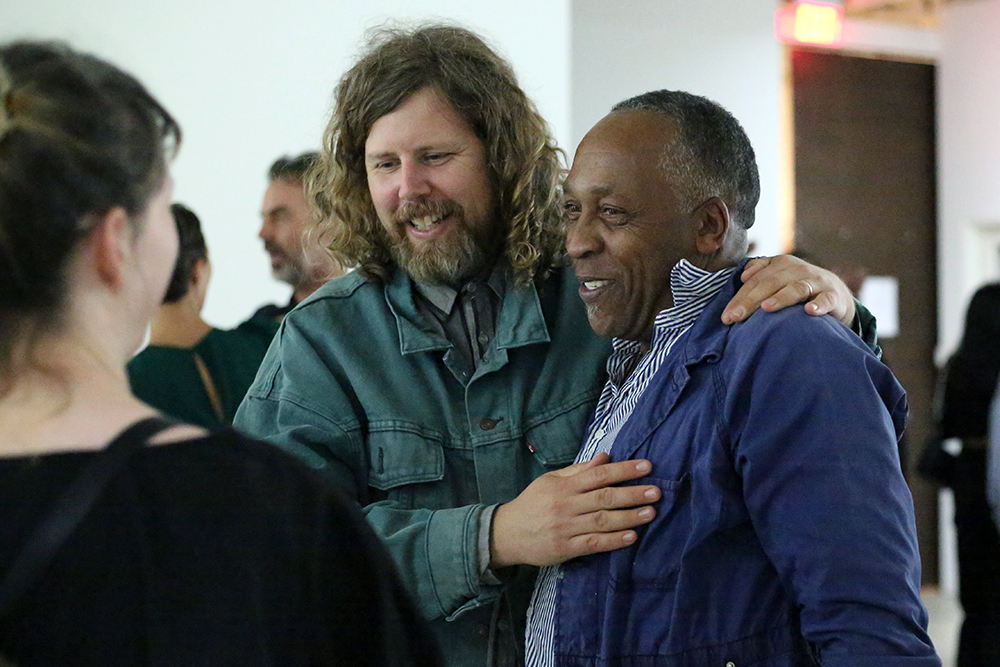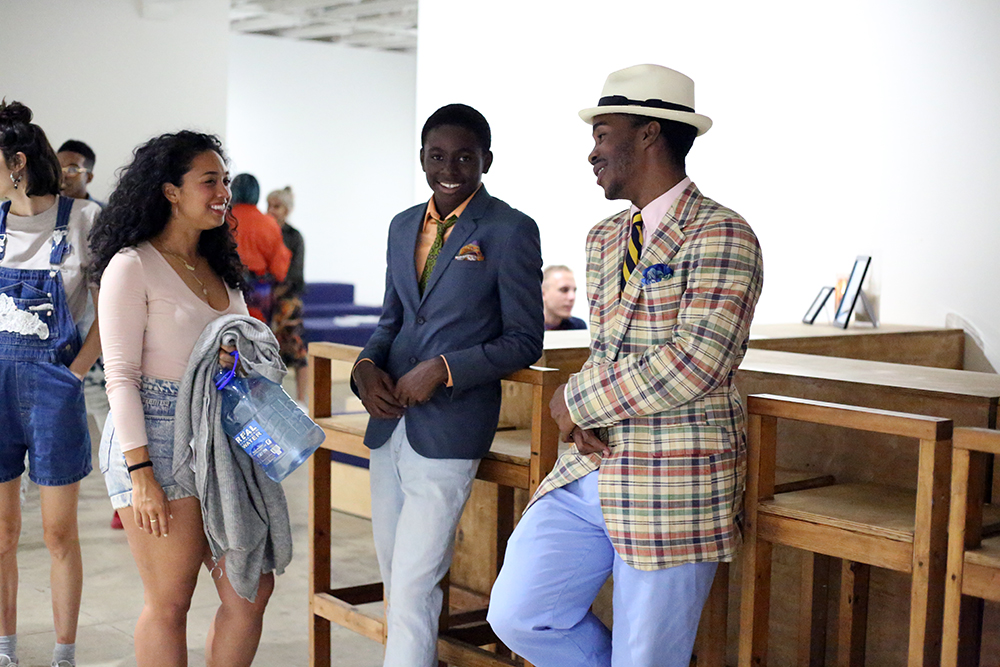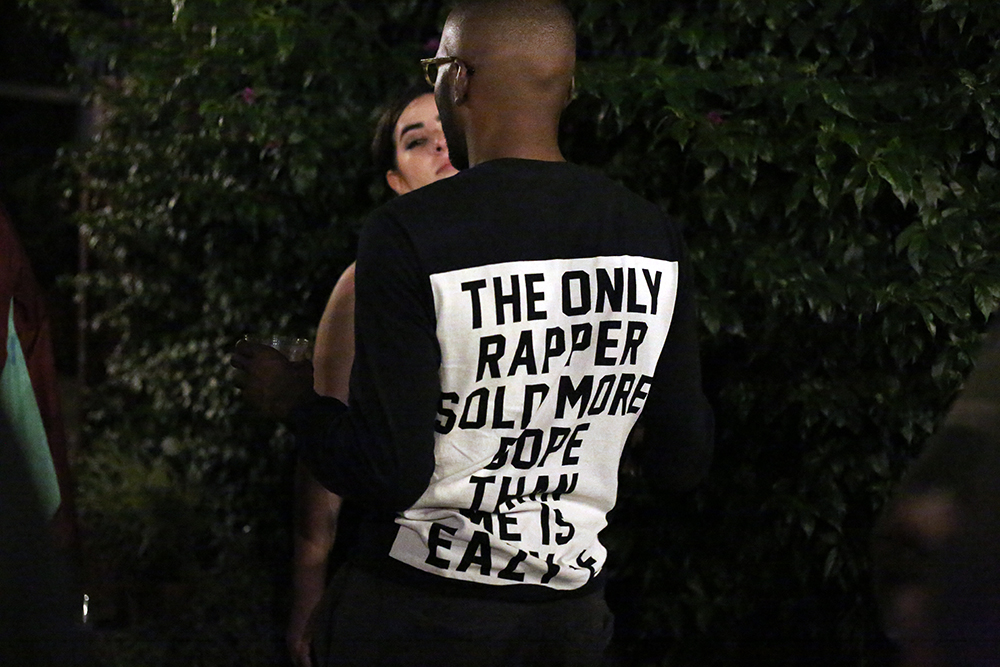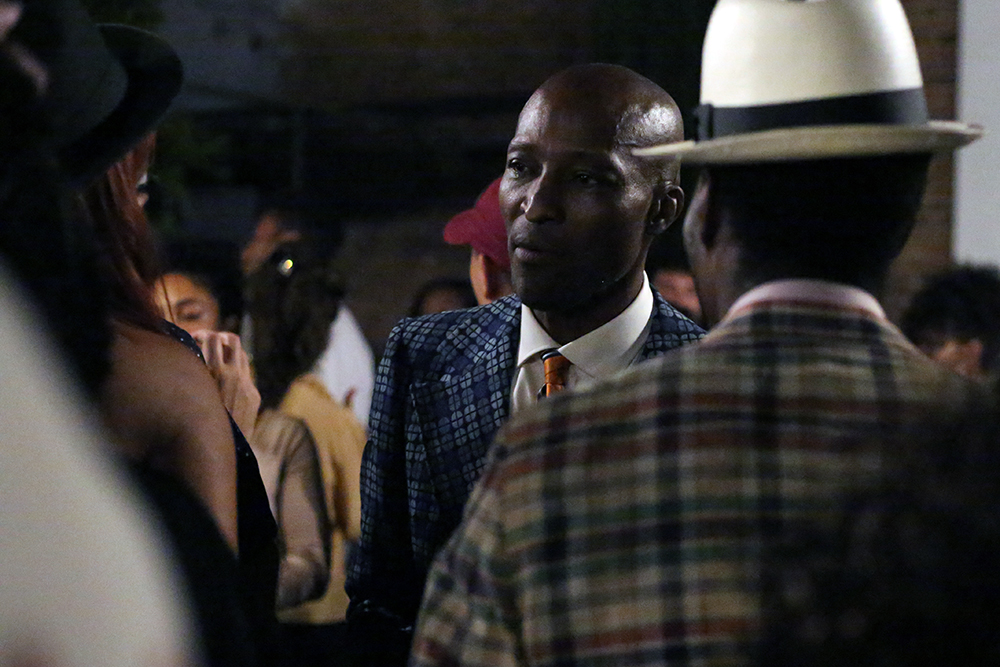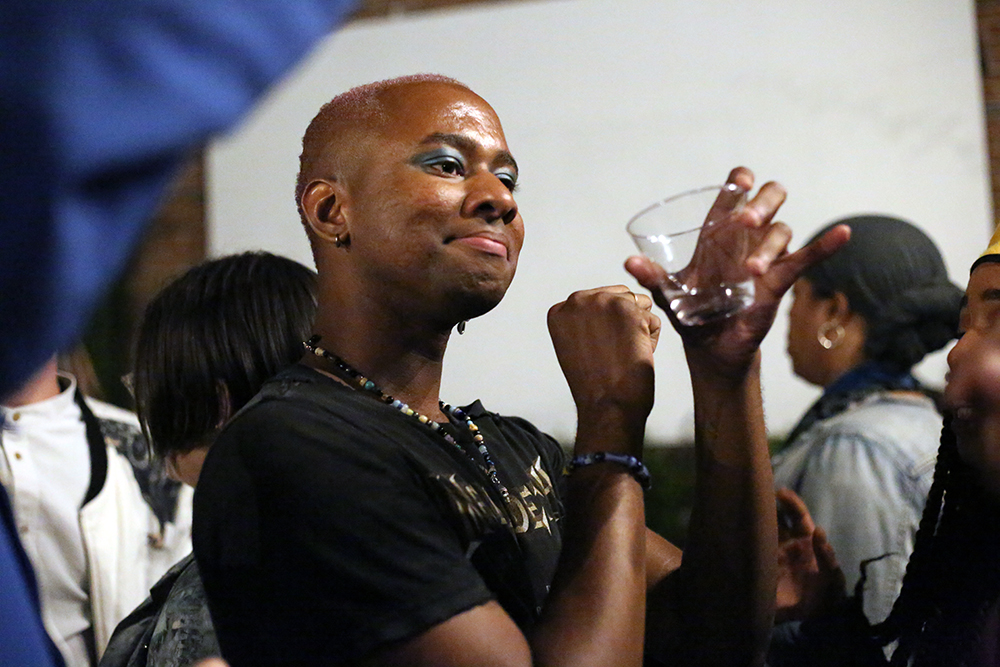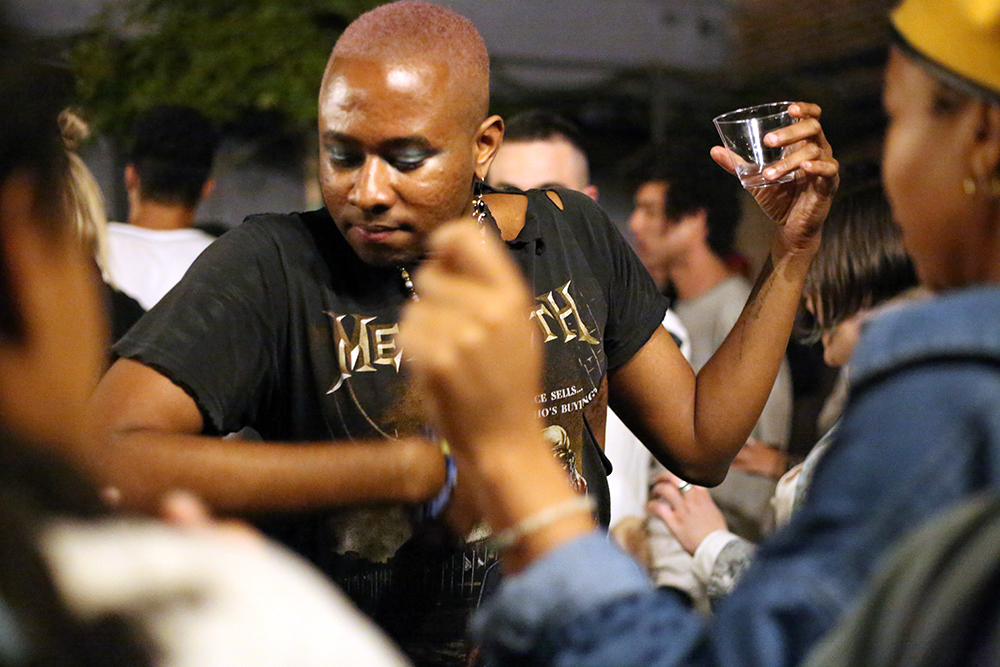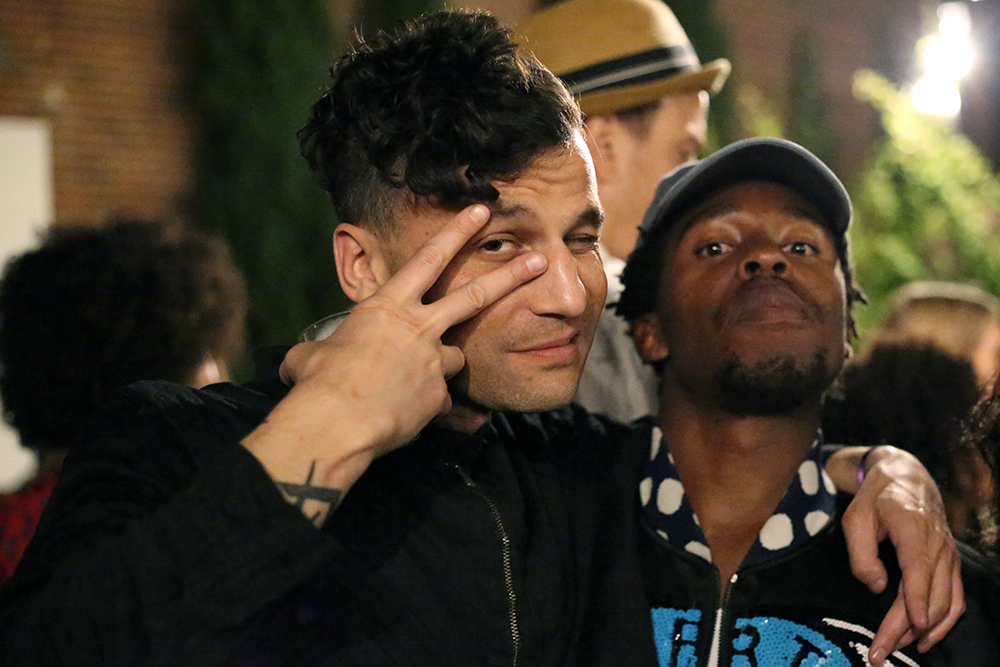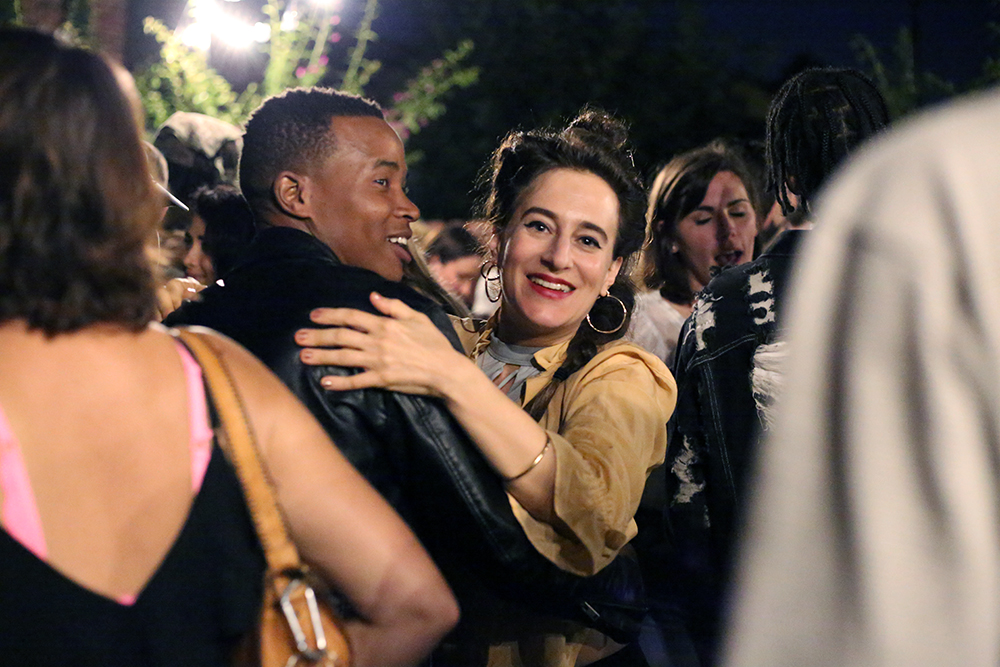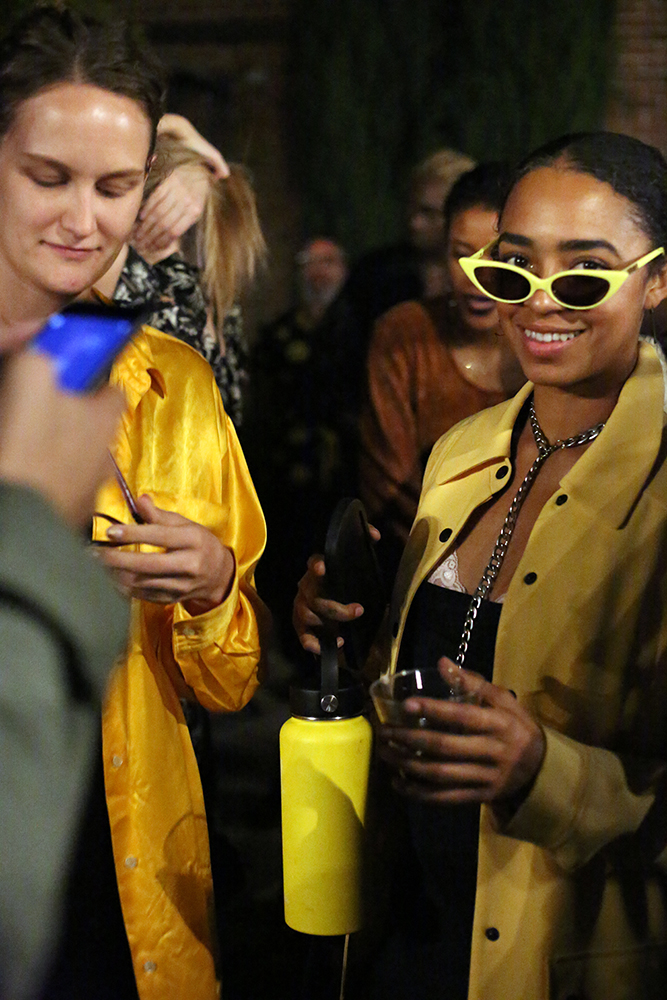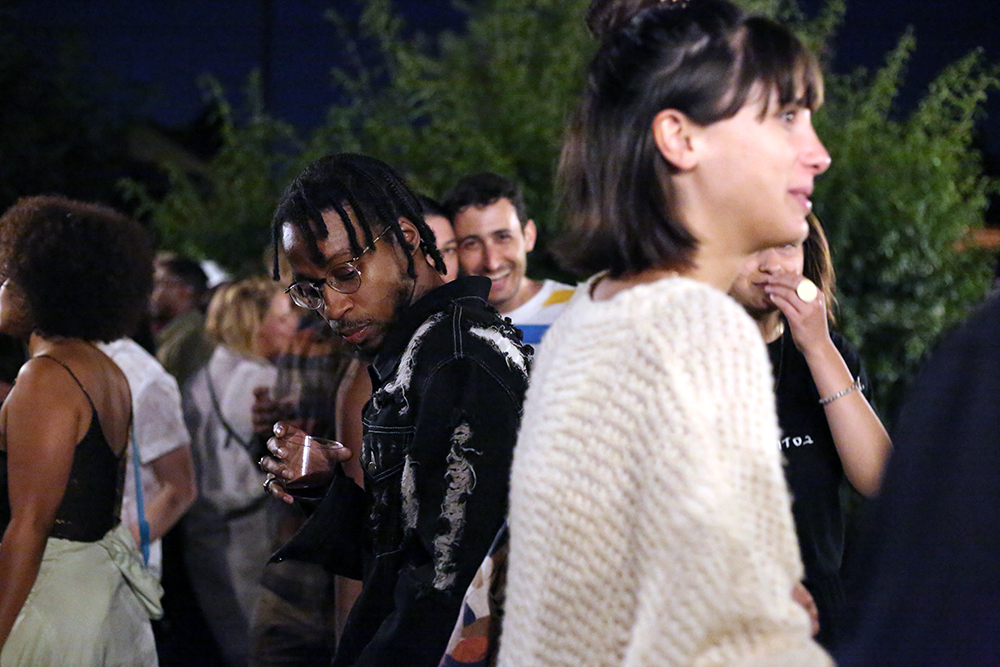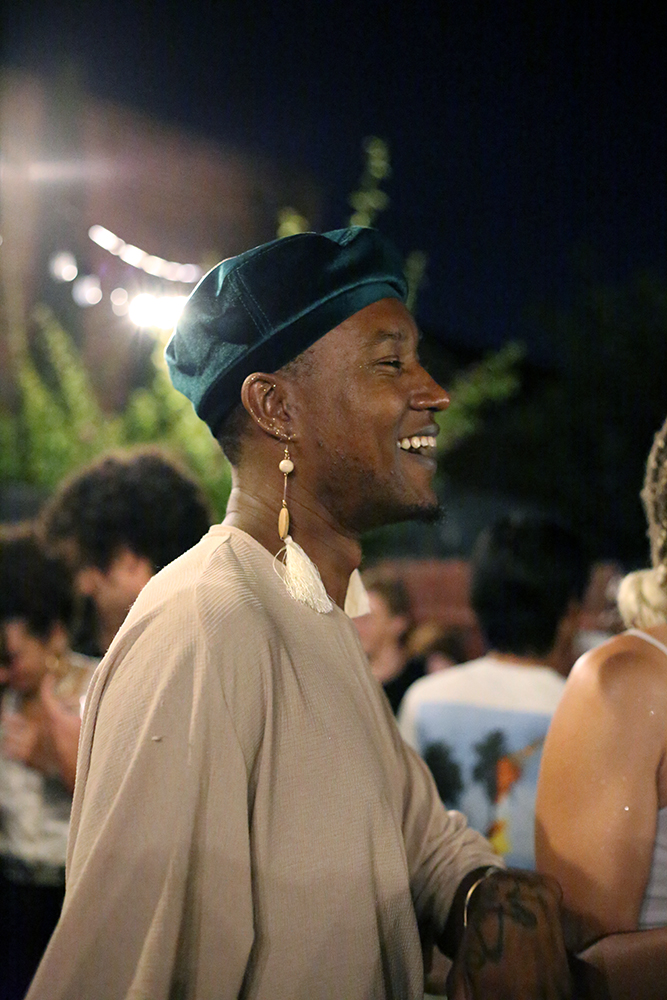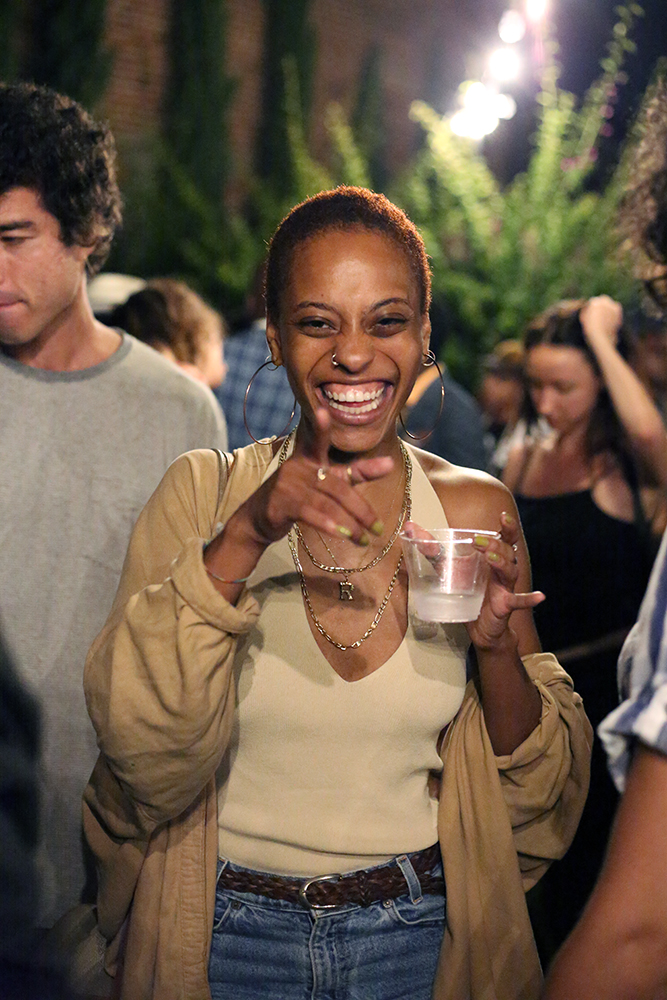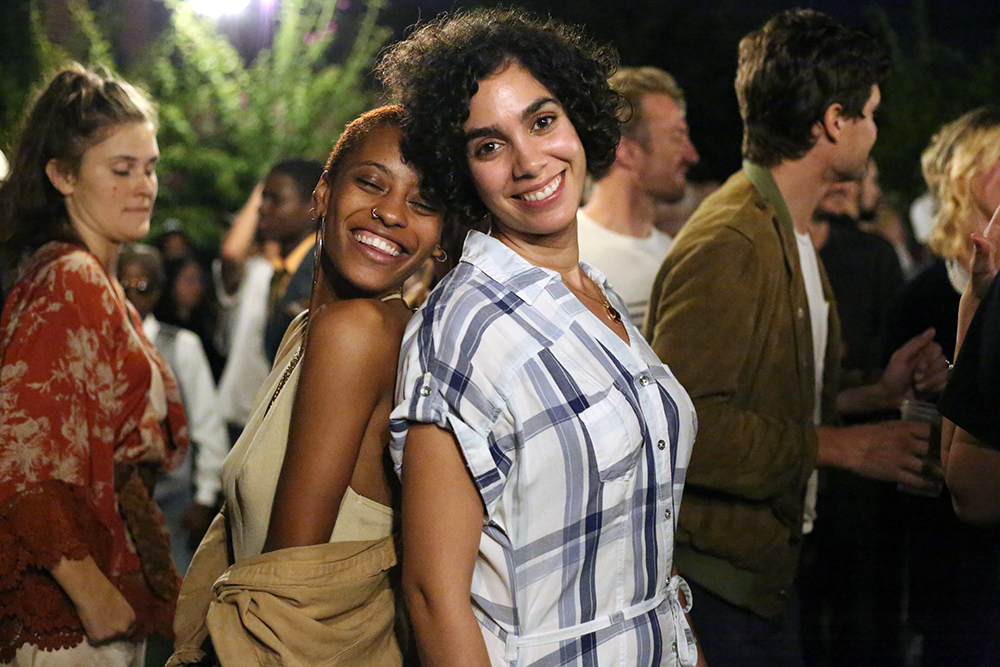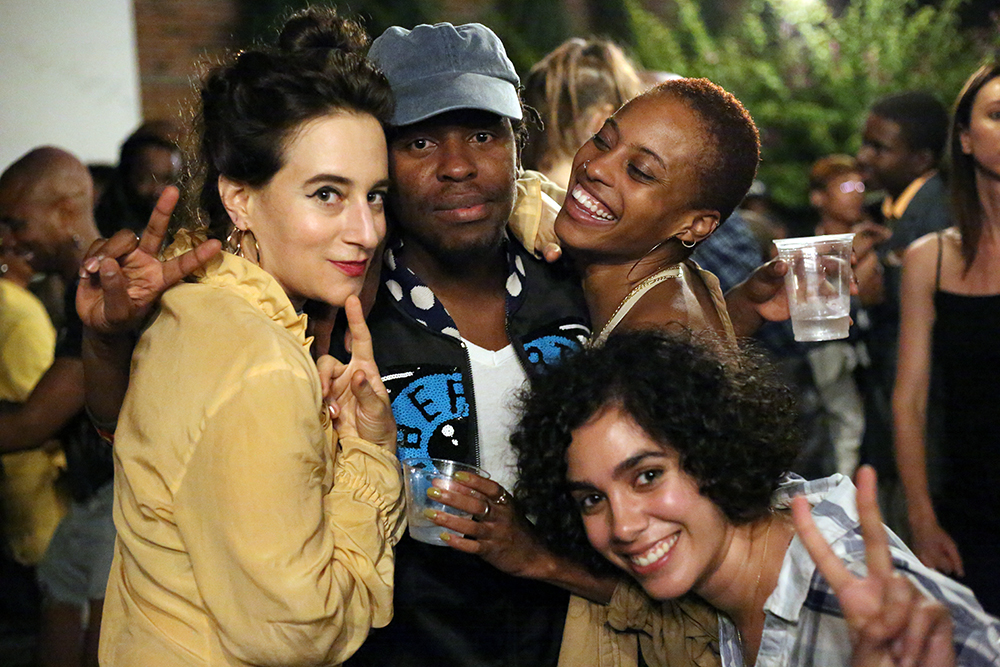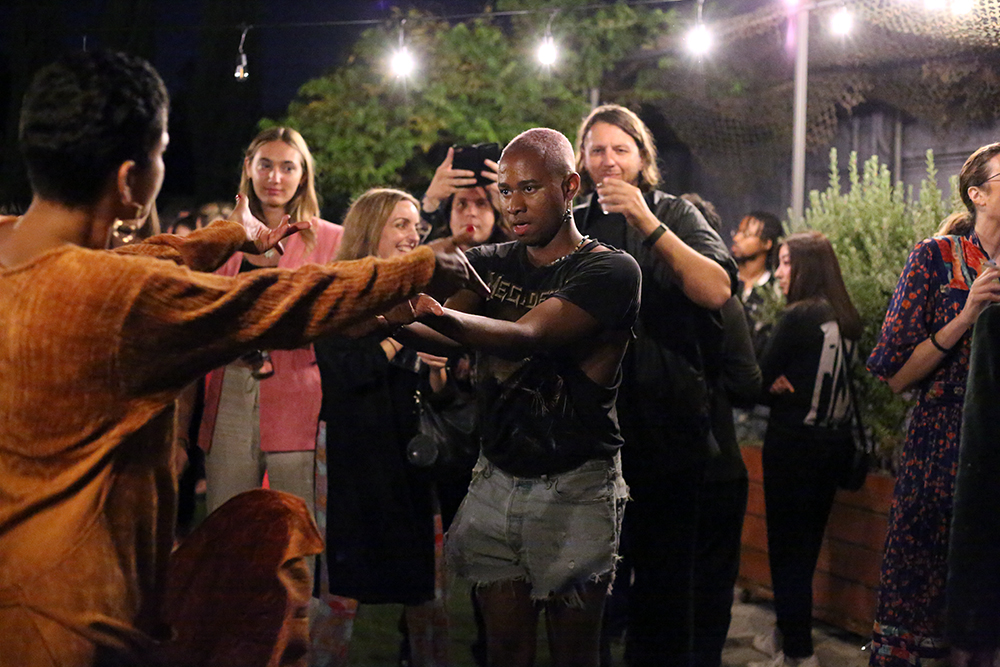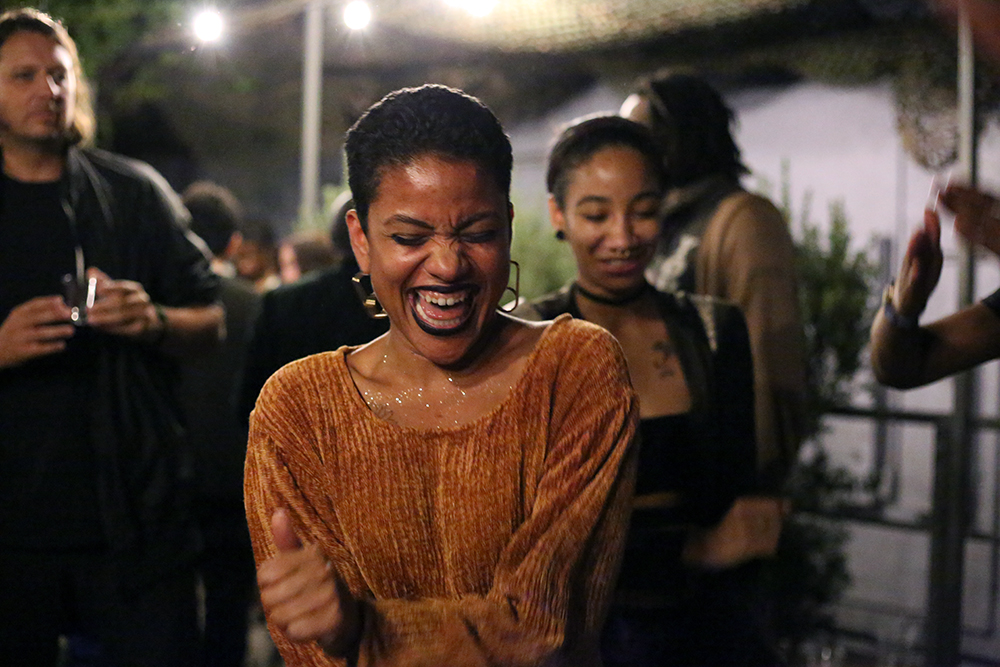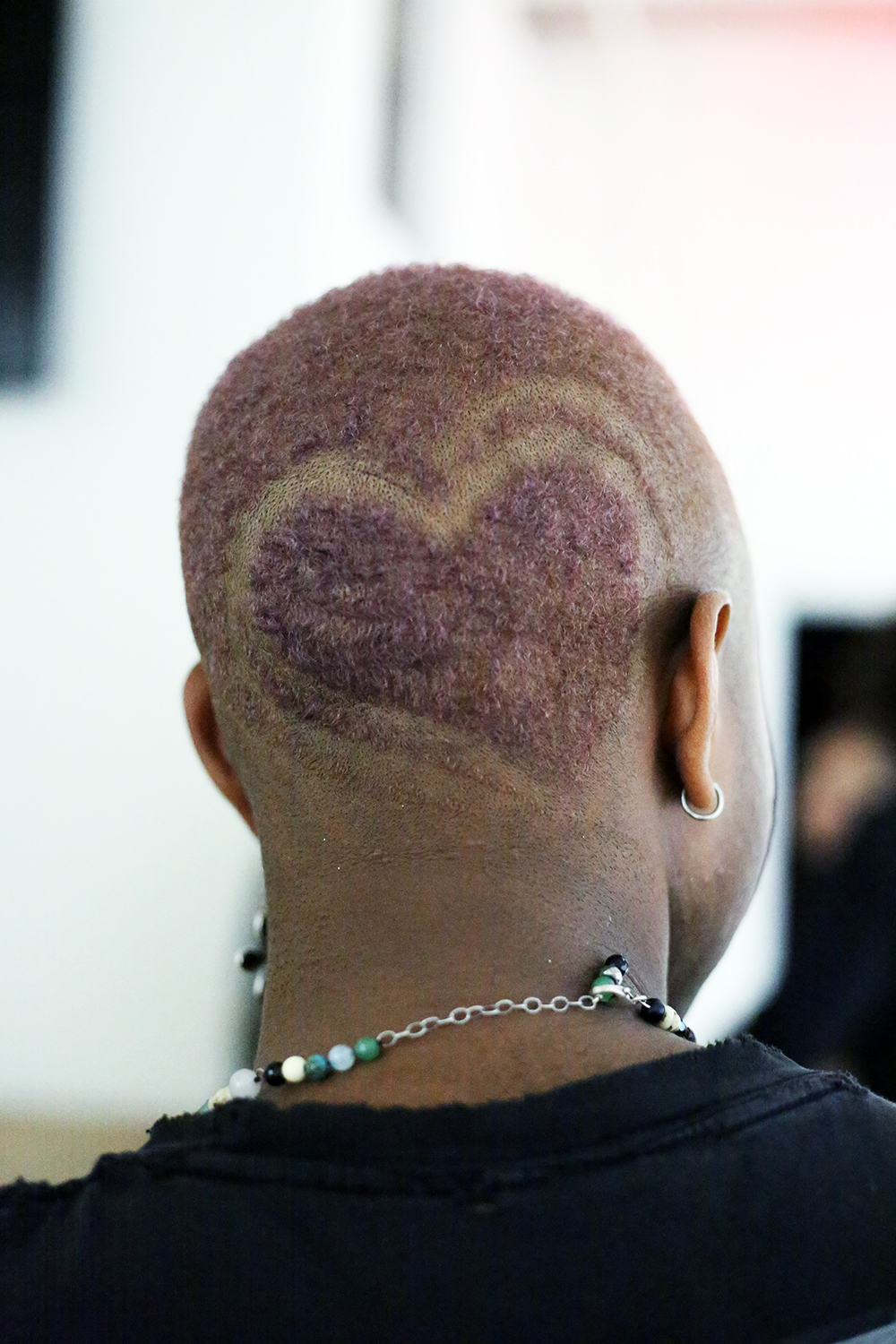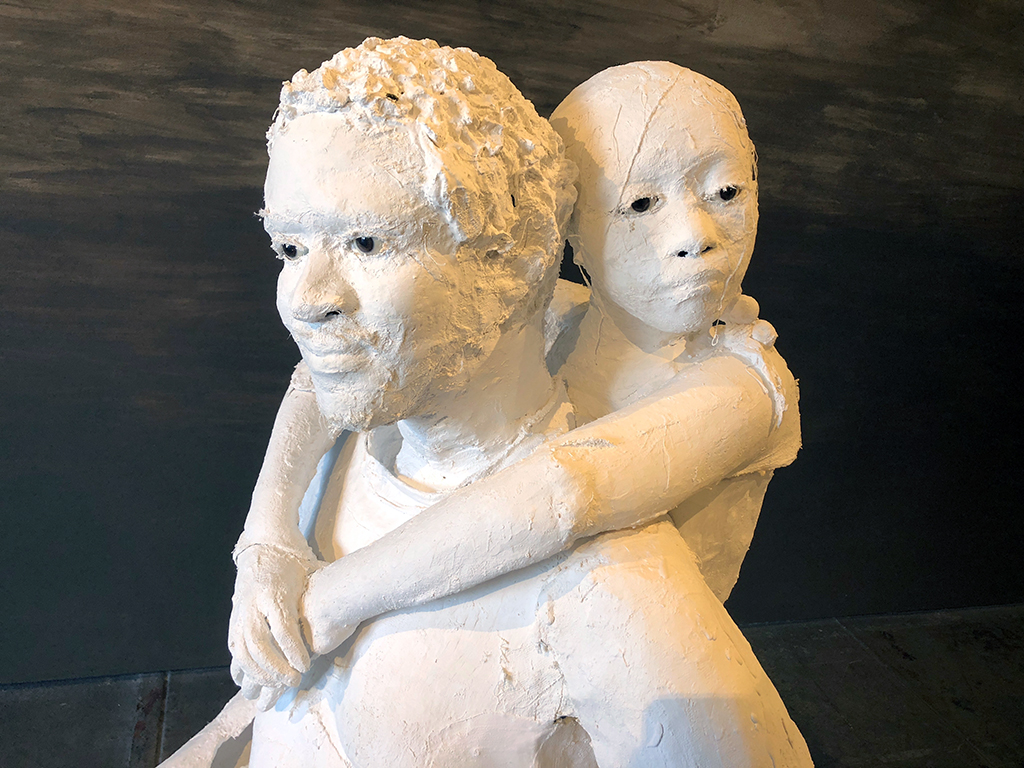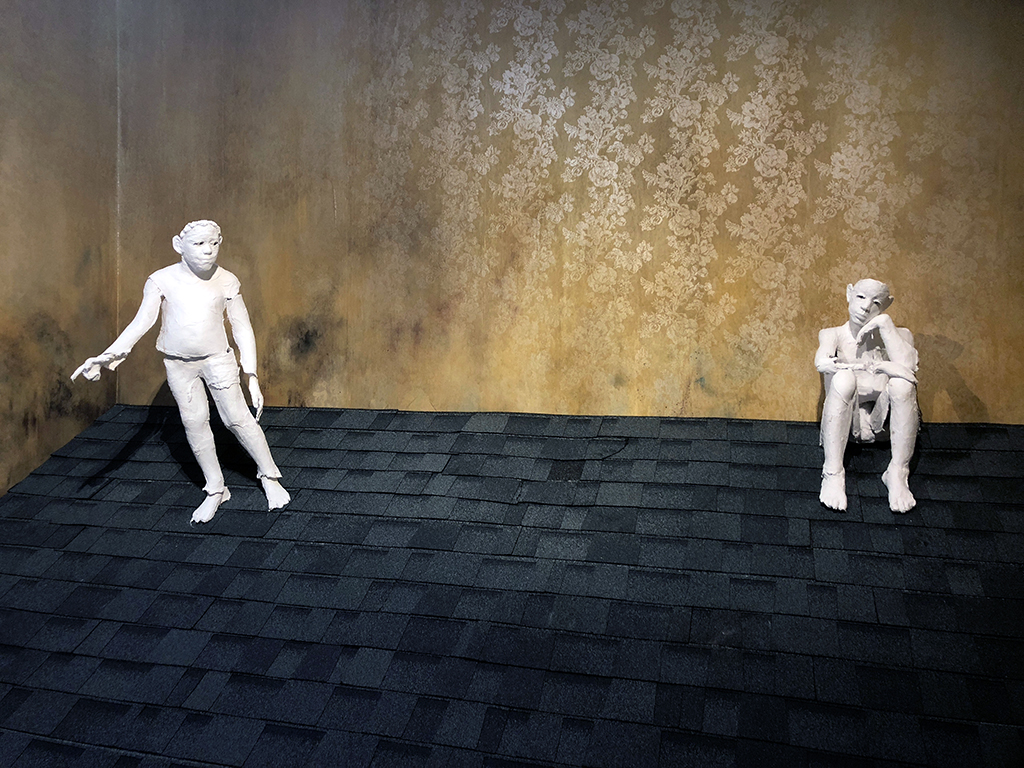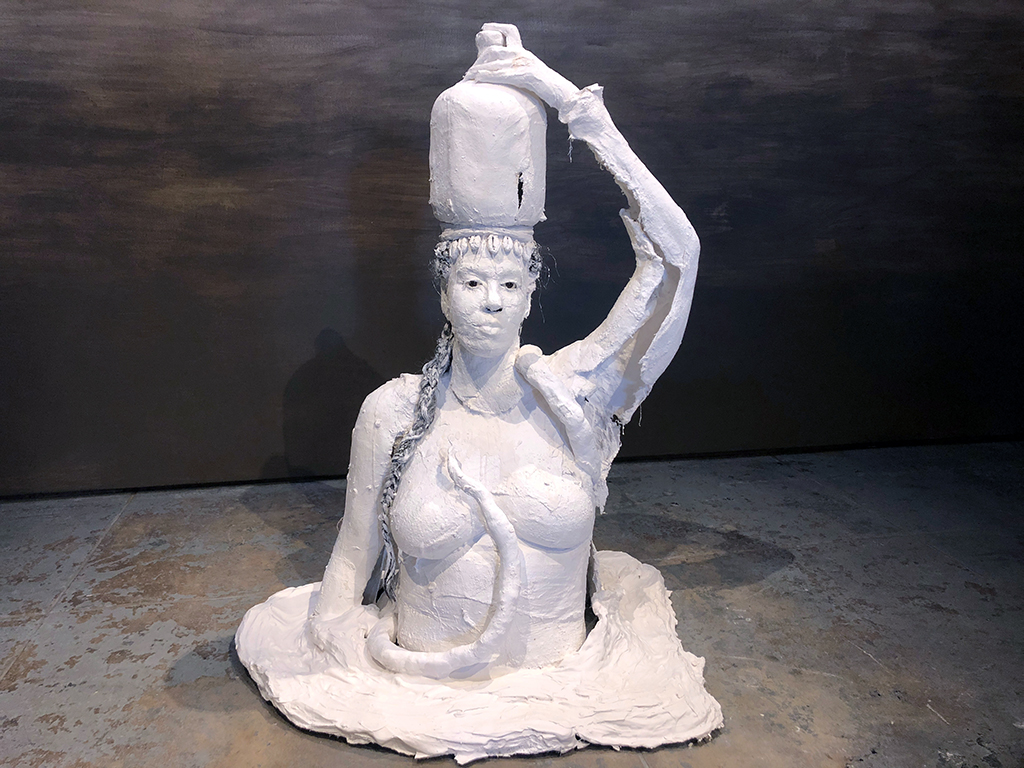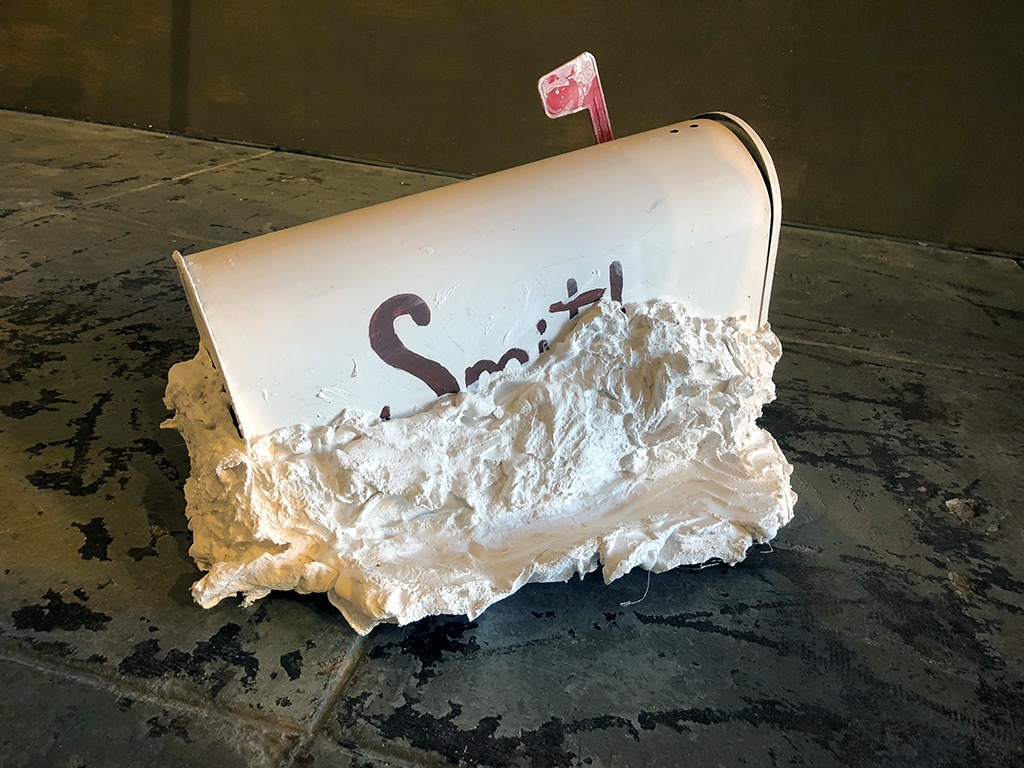When Karon Davis has not seen a specific image of Black history in art history, she tries to create it herself. For her first solo exhibition in New York, No Good Deed Goes Unpunished, the viewers are witness to one of the most unjust trials in American history. The work celebrates the defiance of Bobby Seale in the face of injustice. Bobby Seale, bound and gagged in a Chicago courtroom, is one of the most searing images in American history. There were no photographs of this shocking episode during the trial of the Chicago 8 in October 1969, only artists’ sketches. This has made the image even more resonant as we conflate the sketches and subsequent actors’ portrayals in our visual memory. The image of Bobby Seale, physically restrained but defiant, refusing to submit to the judge, has haunted Davis for many years. It became especially provocative during the past year’s incidents of police violence.
A powerful sculptural tableau of a bound and gagged Bobby Seale in front of Judge Julius Hoffman and the Chicago jury confronts visitors to the exhibition. Displayed in front of the courtroom are fifty sculpted bags of groceries, juxtaposing the Black Panthers’ free food program for the Black community in Oakland, California, with the repression of the judicial system.
Davis’s title for the exhibition is a reference to the government’s violent prosecution of the Black Panthers and its distortion of the public’s understanding of the Panthers’ contributions to their community.
Karon Davis: No Good Deed Goes Unpunished is on view through April 24 @ Jeffrey Deitch 18 Wooster Street, New York

